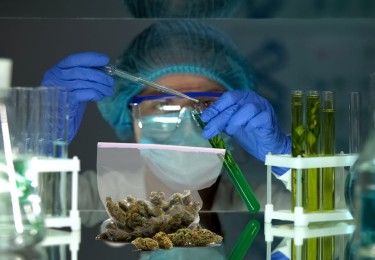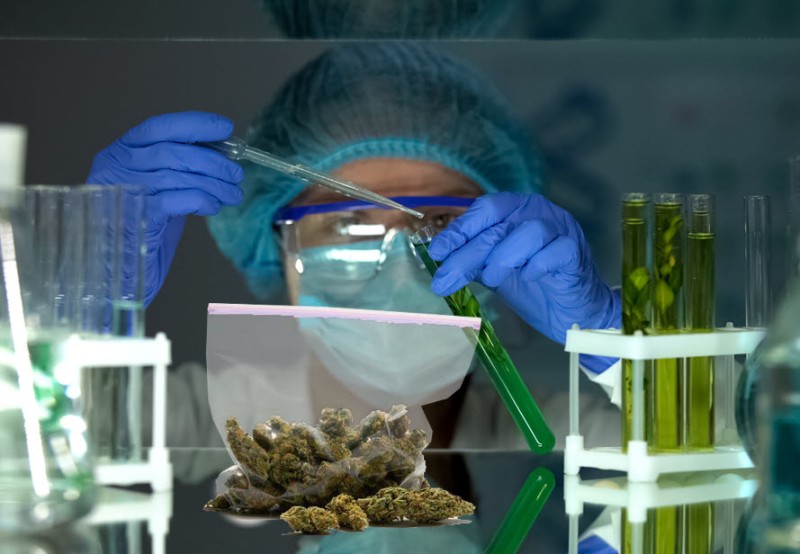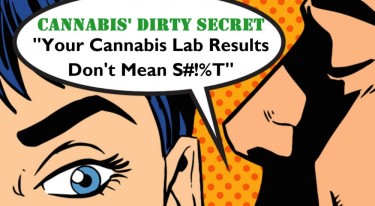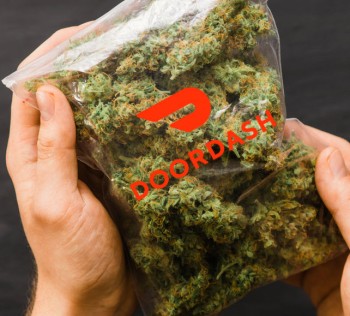
In the cannabis industry, there is a strong focus on producing highly potent products, leading to intense competition among producers. This presents a challenge for marijuana testing laboratories responsible for assessing the potency of these products. This issue has mainly emerged in regions like California and other states where cannabis is legalized. Josh Swider, the CEO of Infinite Chemical Analysis Labs, highlights this problem and suggests that Missouri should take note.
In 2020, Swider started receiving requests from cannabis producers who wanted a guaranteed THC test result of a certain level (e.g., 20mg) when providing samples. He, being committed to integrity, couldn't provide such guarantees. Over the years, this minimum requested potency escalated to 30mg or more, regardless of actual circumstances. Swider collaborated with cannabis scientists across the US to develop best practices for testing and address the problem of "lab shopping," where producers look for labs that provide favorable results.
One significant recommendation is the implementation of interlaboratory comparison, which helps identify flaws in the testing system. Missouri introduced a "round robin" testing approach where the state directs certified testing labs to verify each other's work. This aims to ensure consistency in THC potency outcomes and prevent lab discrepancies. However, some testing lab owners in Missouri opposed this rule, arguing that it duplicates existing requirements and is burdensome.
In November, when Missouri legalized recreational marijuana, new regulations were needed. The interlaboratory comparison rule was included, becoming enforceable in July. The law went through a public commentary phase and review by the legislative committee. Amy Moore, from Missouri's division of cannabis regulation, emphasized the significance of this rule due to the challenges of regulating for-profit cannabis testing labs.
No Standardized Method of Testing
Testing is just one of the numerous domains — alongside aspects like cannabis banking or labeling — where the overarching federal illegality of marijuana hinders the regulatory landscape of states.
Industries like food production have their testing standards established by the federal government. However, when it comes to marijuana products, the absence of federal regulation is conspicuous due to its ongoing classification as an illicit substance. This glaring lack of federal oversight over marijuana has significant consequences.
Experts in cannabis laboratories underline that using differing testing methodologies naturally yields various results concerning pesticide levels and THC potency. This variability poses a substantial challenge for state regulatory bodies. A consistent federal framework is necessary for these agencies to navigate a complex terrain, further complicated by the lack of comprehensive resources to establish comprehensive testing standards.
Kim Stuck, CEO of Allay Consulting, a firm specializing in cannabis and psychedelics compliance, emphasized that the states lack the requisite "on-the-ground" presence to formulate robust testing norms.
"This issue has plagued the industry right from its inception," noted Stuck, drawing from her experience as a former investigator for Colorado's regulatory authority. She added that she has yet to witness any state effectively ensuring that testing labs consistently produce accurate results. However, the topic is being widely discussed.
California is presently undertaking a significant initiative to establish a standardized testing methodology. This endeavor initiated back in 2021, has garnered considerable attention across the cannabis sector throughout the entire country. The whole cannabis industry is closely observing the rollout of California's efforts.
Lab shopping
Lab shopping in the cannabis industry raises safety concerns as products might not match their labeled THC content. This leads to financial losses for consumers and the risk of unintentional overconsumption. Some states, like Missouri, counter this by having testing labs verify each other's results. Pennsylvania attempted a similar approach, but a court invalidated it. Oregon also adopted a similar rule in January, aiming to shift lab incentives from achieving the highest results to obtaining accurate ones.
Interlaboratory comparison is considered the best solution for state agencies until federal legalization occurs. Proficiency testing is standard, where labs evaluate their performance against set criteria. Accredited test providers perform inter-lab comparisons using samples from the same batch to ensure result consistency. Missouri mandates annual proficiency tests, while other states like Colorado and California do so biannually.
An obstacle is that test providers can't handle marijuana due to federal legality. In Colorado, the Department of Public Health conducts proficiency tests. Missouri and Oregon maintain proficiency testing but enhance it with more frequent, randomized round-robin tests. In this approach, labs test each other's samples due to the absence of state testing facilities.
States like Oregon see value in learning from each other's regulatory efforts. Rules like those in Missouri could inspire improvements to Oregon's round-robin testing framework.
Pushback By The Industry
The new rule empowers the department to investigate and take corrective actions against testing labs with inconsistent results in Missouri. However, lab owners are concerned that the state might apply the rule too punitively, needing more data to support their actions.
Anthony David, COO of Green Precision Analytics Inc., explains that developing testing methods and standards requires a substantial volume of test outcomes, which this rule doesn't provide. With only 100 samples collected annually from the state's ten labs, he argues that more data is needed to determine if lab results are outliers or compliant with regulations.
David points out that Colorado and California include inter-lab comparisons in their proficiency testing but still struggle with "lab shopping." He believes Missouri's approach introduces unnecessary obstacles and costs.
Josh Swider agrees, suggesting Missouri shouldn't limit the number of tests. He cites California's shortcomings due to weak enforcement mechanisms. Swider believes their rules could succeed if Missouri is committed to holding labs accountable.
Recent actions, like a significant recall of 60,000 cannabis products due to improper testing, highlight regulators' readiness for decisive measures. Using California as an example, Swider emphasizes enforcement as vital, as a lack of action could lead to industry collapse.
Conclusion
In the dynamic landscape of the cannabis industry, the challenge of ensuring accurate and consistent testing results for products remains a complex issue. While states like Missouri attempt to address this challenge through interlaboratory comparisons and round-robin testing, concerns have been raised about these approaches' effectiveness and potential unintended consequences.
The lack of federal regulation due to marijuana's illegal status further complicates matters. It is clear that finding a balance between fostering innovation, ensuring consumer safety, and implementing effective enforcement mechanisms is crucial for the sustainable growth of the cannabis testing sector. As the industry continues to evolve, collaboration among states and a commitment to accountability will likely play pivotal roles in shaping the future of cannabis testing practices.






